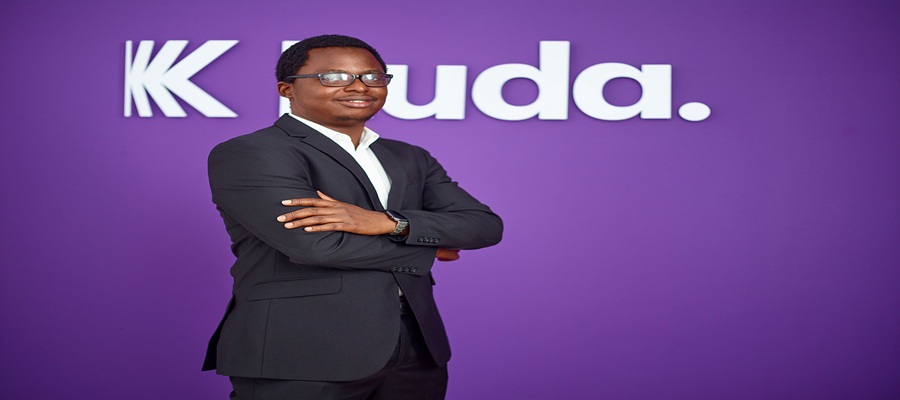E-Financial
9mobile, CBN, Ecobank, Others Brainstorm Deepening Financial Inclusion in Nigeria

As part of efforts to promote financial inclusion among the unbanked and underbanked population in Nigeria, innovative telecoms brand, 9mobile, joined Ecobank, Vanguard Newspapers, Sanef, and other stakeholders in the financial sector to brainstorm the germane issues and plot a roadmap to actualizing the cashless policy of the Central Bank of Nigeria.

The virtual Forum Series which was organized by Ecobank and Vanguard Newspaper focused on Mobile Payment Innovation and Closing the Financial Inclusion Gap – post Covid-19.
Representing the apex bank, Jimoh Musa, Director of Payment Systems at the Central Bank of Nigeria, stated that Nigeria has made a commitment to reduce the number of financially excluded from 46% to 20%.
He emphasized that the idea and strategy of the CBN to introduce agent banking and mobile money was to solve the inclusion access and proximity issues.
“One of the things that we found was that it was very difficult for people in the rural communities to have access to financial touch-points to the extent that people in the rural communities would have to travel for 10 to 20 minutes to get to the nearest financial touch-point.”
In his contribution, Alan Sinfield, the CEO of 9mobile, stated that the telecom company is continually exploring opportunities to bring creative solutions to Nigerians.
“9PSB provides an excellent opportunity to further pursue this commitment to serve more people in a manner that improves their quality of life,” he explained, adding that, “we are confident that 9PSB will also stimulate savings and investments as more liquidity is mobilized from the informal sector into the mainstream financial system. This will translate into increased economic activities in the informal sector and the overall economy.”
Sinfield stated further that there is need for collaborations and partnerships to achieve more inclusion. “We are willing to partner with financial institutions to reach out to the unbanked and under-banked population in Nigeria.
Telcos in Nigeria have some customer data advantage that Nigeria’s financial institutions can benefit from to deepen their penetration. Even though banking started long before mobile telecommunications, there are more active mobile lines than active bank accounts,” the telco chief said.
According to Mr. Patrick Akinwuntan, the Managing Director and Regional Executive of Ecobank Nigeria, Nigeria’s population of over 200 million people underscores the unique potentials inherent in harnessing the financial inclusion drive.
He said that “essentially, the most critical task for us is how we can move from the narrative of using financial inclusion for poverty alleviation to providing wealth creation and gainful economic engagement with the largest pool of participants in the economy.”
E-Financial
FBNQuest Merchant Bank Rebrands as Quest Merchant Bank

FBNQuest Merchant Bank Limited has completed a change of name and will now operate as Quest Merchant Bank Limited, following the receipt of all required corporate and regulatory approvals.

The name change does not affect the Bank’s legal or going-concern status, management, or the nature of its business. Quest Merchant Bank Limited remains a duly licensed merchant bank, regulated by the Central Bank of Nigeria (CBN) and the Securities and Exchange Commission (SEC), and continues to deliver its full suite of merchant banking, advisory, and capital markets services to clients.
Commenting on the development, the Ag. Managing Director/CEO, Afolabi Olorode, stated: “This name change represents a pivotal milestone in the rich history of the Bank and a deliberate strategic repositioning that reflects our resilience, strong track record, and long-term growth ambitions. While our name has evolved, our commitment to our clients, stakeholders, and regulators remains unwavering.”
As part of the transition, the Bank is updating its branding, communications, and digital platforms to reflect the new name. During this period, some legacy references may remain visible across select touchpoints as updates are progressively completed.
All existing contracts, client relationships, and obligations of the Bank remain valid, binding, and fully enforceable following the name change.
E-Financial
UBA launches instant digital platform for seamless account opening across Africa, diaspora

United Bank for Africa (UBA) Plc, Africa’s leading financial institution, on Tuesday unveiled a groundbreaking instant account opening platform, revolutionising banking access for millions across the continent and diaspora communities worldwide.

UBA
The fully digital innovation, accessible at ubagroup.com, empowers prospective customers to complete account onboarding online in minutes, bypassing paperwork, branch visits, and lengthy processes that have long hindered financial inclusion. Supporting Naira and Diaspora accounts with multi-language options, the platform operates seamlessly on computers, tablets, and smartphones, catering to UBA’s diverse pan-African footprint spanning 20 countries, the UK, US, France, and UAE.
Shamsideen Fashola, Group Head of Retail and Digital Banking, described the launch as a pivotal step in democratising finance. “At UBA, we are committed to redefining the customer experience through innovation and simplicity,” Fashola said. “This fully digital solution underscores our belief that banking should be accessible, secure, and truly borderless.”
The seven-step process is intuitive: customers select “Open a Savings Account,” input their Bank Verification Number (BVN), undergo facial verification, confirm an OTP, update details, upload documents, add a digital signature, and receive an instant account number. This bridges traditional banking rigour with fintech speed, incorporating digital KYC while upholding stringent security.
Built with compliance at its core, the platform adheres to Nigeria’s Data Protection Act (NDPA) and Europe’s GDPR, safeguarding user privacy amid cross-border operations. Unlike conventional methods requiring physical biometrics, it enables immediate enrolment in UBA’s digital channels, blending convenience with regulatory depth.
Alero Ladipo, Group Head of Brand, Marketing, and Corporate Communications, highlighted customer-centric design. “Today’s customers expect speed, convenience, and compliance without compromise,” Ladipo stated. “We have blended industry-leading digital onboarding with robust standards for a seamless experience matching global best practices.”
The move reinforces UBA’s dominance in technology-driven inclusion, serving over 50 million customers with 30,000 employees and pioneering retail, commercial, and institutional services. Analysts view it as a strategic edge over fintech rivals, accelerating Africa’s digital economy amid rising diaspora remittances and intra-continental trade.
As Nigeria and Africa push financial digitisation, UBA’s platform positions the bank to capture untapped markets, fostering economic growth through barrier-free banking
E-Financial
Kuda MFB Secures National Microfinance Banking Licence, Sets Stage for Nationwide Growth

Kuda Microfinance Bank (Kuda MFB) has received a license from the Central Bank of Nigeria (CBN) to operate as a National Microfinance Bank, which means that it can now have a physical presence across Nigeria.

Musty Mustapha, MD/CEO of Kuda MFB
With the Unit Microfinance Bank licence it held until December 2025, Kuda MFB’s physical operations were limited to a specific location. The national licence removes those geographic restrictions, allowing the bank to open customer experience centres in multiple parts of the country. It also regularises Kuda MFB’s licensing status in line with the Central Bank’s framework for microfinance banks.
According to the bank, the national licence is about regulatory alignment and operational flexibility rather than a shift away from its digital-first model, so it will continue to lead with digital banking services, offering Nigerians the convenience of making transfers and payments, saving, and accessing instant credit through the Kuda app.
Musty Mustapha, MD/CEO of Kuda MFB, said, “Securing a national microfinance banking licence is an important step for us as a regulated institution. It strengthens our relationship with the Central Bank and affirms our commitment to operating at the highest standards of compliance as we scale. While we remain digital at our core, this licence gives us the flexibility to create more physical touchpoints where customers want in-person support or engagement, allowing us to serve Nigerians across the country in whichever ways are most convenient for them.”
Subject to regulatory approval, Kuda MFB plans to open more experience centres designed for customer support and community engagement, in the style of its existing experience centre in Yaba, Lagos, where customers and the general public can speak directly with the Kuda team to get help and learn about the microfinance bank’s products and services.
Kuda MFB’s national licence does not change its existing product offerings or transaction capabilities, but it provides the regulatory backing for a nationwide presence.

 Telecom2 days ago
Telecom2 days agoPolice Bust ₦7.7bn Telecom Hack Gang, Seize 400 Laptops in Massive Fraud Swoop

 E-Financial3 days ago
E-Financial3 days agoPayPal Goes Live in Nigeria through Paga

 Broadcasting3 days ago
Broadcasting3 days agoNITDA, NBC Explore Strategic Collaboration on Digital Transformation, Media Regulation

 General News2 days ago
General News2 days agoNaira Smashes Through ₦1,400 Barrier in Official FX Rally

 General News2 days ago
General News2 days agoNCC Slaps ₦250,000 Fee on Trial Licences to Spur Telecom Innovation

 General News3 days ago
General News3 days agoFacebook Powers Connection, Creativity at African Creators Summit 2026

 E-Business3 days ago
E-Business3 days agoGold Hits Record $5,110/Ounce Amid Trump Tariff Threats, Geopolitical Fears

 Telecom3 days ago
Telecom3 days agoTikTok, Instagram Blamed in US Youth Suicide Lawsuit

























